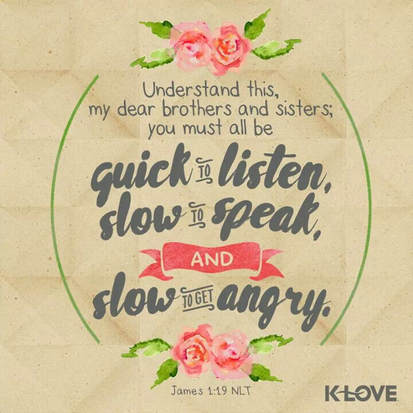 This is a guest blog post from Mary Weinstein, Church Administrator. Mary is a fierce proponent of prayer, and has a desire to see people transformed with a new or growing relationship with Jesus. While generally caffeine,addled, Mary enjoys hiking, reading, and spoiling her cat. My Dad really dislikes the word ‘dude.’ Growing up if I called him that he would respond by repeating the word several times in an exaggerated tone: “dooooooode, dooode, dooooode” much to my adolescent chagrin. His point was that ‘dude’ is not a term appropriate for me to use for him. It is not a term that accurately reflects our relationship. How we speak to one another indicates our relationship. You can tell a lot from how someone talks to another person. How much they respect that person, if they are comfortable with that person, and even how often they speak to him or her in general. How are you talking to God? As Christians we have the privilege of talking to God directly. Through prayer we can ask God for help, thank him for his provision, and acknowledge him as sovereign. For the eyes of the Lord are on the righteous and his ears are attentive to their prayer…, 1 Peter 3:12 Although we have the Bible, it can still be difficult to know how, and when to address God. Below are some suggestions on how to approach prayer.  How to Pray 7 Things You Should Do When Talking with God Below is a list of ways you can approach talking with God. This is not an all encompassing list, but it’s a good place to start. 1.Know God is Always Listening God has so many names, and all of them reflect who he is. He is our Savior, Lord, Father, Friend (and so much more!). One name for God is Immanuel, which means God with us. God is with you always. He is listening, and he cares about even the tiniest of your needs. There is no special time or place where you should talk to God. He is with you on the commute to work, in the waiting room at your doctor’s office, and even in the shower. (Coincidentally all good times and places to pray.) If you had the president's phone number, and had the assurance he would pick up the phone every time you called, and that he would do his best to meet all of your requests, how often would you call him? Side note here, God is not like Santa in that he is always listening in order to put you on the ‘naughty list.’ He is listening so he can help you, encourage you, and equip you for your daily life. He is a God of justice, but also of grace. And if we know that he hears us—whatever we ask—we know that we have what we asked of him.- 1 John 5:15 2. Know God Loves You God loves us so much that he sent his only son Jesus to die on our behalf (John 3:16). You are loved so intensely by God! The Bible often addresses God’s followers (you!) as Beloved. God considers you Beloved, or: much loved, darling, dear, precious, treasured, cherished, prized. If God loves you enough to sacrifice his only son, and his name for you is ‘Much Loved’, imagine the conversations he’d like to have with you. Talk to God with an understanding about how he feels about you, and what he’s already done on your behalf. Approach him with confidence knowing he wants to hear what you have to say, and he’s eager to be glorified in your life. Need a reminder of who you are in Christ Jesus? Start reading Ephesians. Who You are In Christ Jesus:
Praise be to the God and Father of our Lord Jesus Christ, who has blessed us in the heavenly realms with every spiritual blessing in Christ. - Ephesians 1:1 3. Pray All the time The Bible encourages us to pray all the time. 1 Thessalonian 5:17 calls us to pray without ceasing, literally to never stop praying. We have some limitations logistically in this regard, but the essence of that verse is that we can (and should) talk to God all the time. If you imagine praying as lofty requests and eloquent language, the idea of praying all the time can seem daunting. But if you are talking to God like a friend (which by the way is how he would like to talk to you), it is much more tangible. Have you ever listened to a small child recounting their day? The story might not be particularly cohesive, or even understandable, but it’s always a joy to listen. That’s who God wants to be in your life. He wants you to tell him about your day, to let him know what you’re excited about. He’s a really good listener, and he is genuinely interested in hearing from you. If you’re not in the practice of praying regularly, start out by spending 3 minutes in the morning talking to God. Remember there’s no special format or location, and everything gets easier with practice.  4. Pray About Everything One of the fundamental characteristics of God is that he is ever present, but he is also all knowing, which means he knows what you need (and want) before you ask for it (Matthew 6:8). God is always with you, and He already knows everything about your life (past, present and future by the way). So there’s nothing you can tell him that will surprise him, and he is aware of everything going on in your life. There’s nothing your struggling with that God won’t understand, or already know about. So there’s no shame in approaching God with things you might be embarrassed about, or might not feel comfortable telling a friend. God also promises that if you ask him for things he will give them to you (John 15:7). So if you’re doing the math: the God who is everywhere, knows everything, and loves you-- has promised to listen and answer your prayers. If you pray to win the lottery you may be out of luck, but if you’re praying for things that align with his word (the Bible), and his Character (also see the Bible), he promises to come through (Matthew 21:22). See a theme here? God is eager to show you how much he loves you! If you need something, ask God for it. I’ve prayed for things big and small from a parking spot, all the way up to world revival. Do not be anxious about anything, but in every situation, by prayer and petition, with thanksgiving, present your requests to God., Phil 4:6 5. Trust God Will Answers Your Prayers In addition to being ever present and all knowing, God is also all powerful. He has all the alls. All the power, that means he can do anything. He’s the type of God that will split entire seas down the middle, rain food from heaven, and raise the dead. I’m not saying he will always do those things specifically for you, but he can (Mark 9:23). Let that settle in for a second. While God can do anything, it’s important to know that he doesn’t always do things on the timeline that we would like, he operates on his own timeline (Ecclesiastes 3:1). Sometimes too, his answer to our prayers may be ‘No’ or ‘Wait’, but he is always eager to bless our lives and bring us into deeper relationship with him (Proverbs 3:5,6). If God is all powerful, eager to move on your behalf, and loves you fiercely, what’s holding you back from talking to him about things that you are worried about? There is nothing that can come against God’s power and authority. For those of you who don’t naturally trust easily, practice trusting God. Read scriptures that talk about God’s promises, and think about times God has come through for you. Then you will call on me and come and pray to me, and I will listen to you. You will seek me and find me when you seek me with all your heart. - Jeremiah 29:12,13  6. Listen to God It’s easy to get caught up asking for things when praying. There’s a lot going on in our lives, and there are many things we need. God is eager to work on our behalf, and wants to hear those requests. It is also important to take the time to listen. Have you ever had a friend who only talks about themselves, or only asks you for favors? One sided conversations (and friendships) get tiresome quickly. God wants to speak with you, which includes speaking to you (Jeremiah 33:3). If you are having trouble hearing God, it may be that you’re not listening. Take a deep breath. Ask God if he has anything he wants to say to you. Actually listen. If your mind starts to wander, gently bring it back. Make a practice of being quiet and listening daily. The exciting thing about listening to God is that he has some pretty awesome things to say. He created the universe (Gen 1), he probably has some pretty good insight for your life. This is the confidence we have in approaching God: that if we ask anything according to his will, he hears us. - 1 John 5:14  7. Honor God by Praising and Thanking Him I am a coffee person, and I am so thankful when someone hands me that first (or third) cup. My appreciation for that coffee reflects the effort and ability that person put into making it, and their thoughtfulness in giving it to me. How much has God blessed you with? What abilities does he have that allowed him to do so? Let God know you appreciate all the things in your life today. Acknowledge him as God. Sometimes when I’m really caught up in worship, all I can say to God is ‘Thank You.’ Thank you for being God. Thank you for making me. Thank you for all that you’re doing in my life today, yesterday, and tomorrow. Thank you that you sent your son on my behalf. Just, ‘Thank You’. If you struggle with knowing how to pray, ‘Thank you’ is a great place to start. I cried out to him with my mouth; his praise was on my tongue. If I had cherished sin in my heart, the Lord would not have listened; but God has surely listened and has heard my prayer. Praise be to God, who has not rejected my prayer or withheld his love from me! - Psalm 66:17,20 How Not to Pray 3 Things You Shouldn’t Do When Talking with God
1.Use Eloquent and Flowery Language Praying out loud can be really intimidating. Even if you’re by yourself, it’s tempting to throw a ‘thou’ in there to make sure God really hears you. It’s important to know God wants a relationship with you, and he already knows how you speak. Talk to him how you would talk to a close friend, with the same vocabulary, intonation, and frequency. If you naturally tend towards more flowery language, go for it! For the eyes of the Lord are on the righteous and his ears are attentive to their prayer… - 1 Peter 3:12 2. Ask God for Things You Shouldn’t Have God is a good father. He is eager to bless you with every good gift. Just like a good Dad though, he’s not looking to feed you ice cream for dinner every night. Good parents discipline their children, tell them no when appropriate, and don’t always give them things they want. Not out of spite or selfishness, but because they want what’s best for their children (Luke 11:13). God is a good father, he will never leave or forsake you. But he may so ‘No’ if you ask him for a Ferrari. You ask and do not receive, because you ask wrongly, to spend it on your passions.- James 4:3 3. Tune God Out Have you ever been introduced to someone, and in the rush of introducing yourself forgotten their name? Ten seconds after shaking hands and you already lost it. God wants to speak with you, but it’s important that those conversations are two sided. Similarly, if you only ever talk (or listen) to God when you need something, you’re missing out on all of the amazing things he has for you (1 John 5:14). Questions to Consider How often do you talk to God, and how do you speak with him? Are there things you’re afraid to ask him for? Do you feel the need to use eloquent language when praying? Are there things you’re hiding from God? What makes you uncomfortable in regards to prayer? Are there people you could be praying for? Verses to Meditate 1 John 5;14,15 2 Timothy 3:16 Matthew 6:33
2 Comments
 This is a guest blog post from Mary Weinstein, Church Administrator. Mary is a fierce proponent of prayer, and has a desire to see people transformed with a new or growing relationship with Jesus. While generally caffeine-addled, Mary enjoys hiking, reading, and spoiling her cat.  Anyone who knows me well (or has seen my Instagram feed), will know that I am slightly obsessed with my cat- Samson. An orange mass of fur and sass- he is the undisputed boss in my house. Last night I came home to Samson with a tail full of burs. And I mean full. He's a long hair guy with a big bushy tail- and it was one huge matted blob of burs. The Holy Spirit is an awesome, encourager, and He loves to bear witness to the gospel (John 15:26)- so He often will remind me of scriptural truths using examples and situations in my life. This week, He used some Vermont burs to remind me of some truths about our community, and the burden of sin.  Four Truths About Sin 1. Sin is destroying those around you. When Samson initially came up to me, I immediately felt empathy. The poor thing was having difficulty walking, and he knew he was in a bad way. We live in a world that is full of the consequences of sin. We see hurting people all around us every day. Maybe you are struggling with something right now. Sin is a result of willful disobedience of God- sinning begets death. In our immediate context we see sin resulting in disease, loneliness, heartache, broken families, lies, etc. In the Bible, sin is likened to a pit, or falling into a pit. Sin is hurting you, and that hurting you see is a result of sin. He lifted me out of the slimy pit, out of the mud and mire; he set my feet on a rock and gave me a firm place to stand.- Psalm 40:2 2. Sin is easy to get into quickly, and deeply. I don't know how Samson got himself so full of burs, but I imagine it didn't take too long. He's got a big ole' bushy tail, and burs are designed to stick to fur. He had some on his legs- back, tail and tummy- and I can see how they easily spread from one area to the others (maybe even as he was trying to get them off). Once you allow a small sin- bigger ones always follow. Your boasting is not good. Don’t you know that a little yeast leavens the whole batch of dough? Get rid of the old yeast, so that you may be a new unleavened batch—as you really are. For Christ, our Passover lamb, has been sacrificed.- 1 Corinthians 5:6-7 3. People need help to get out of sin. There is little chance Samson could ever remove all of those burs on his own. He attempted some furtive leg kicks- but it took a pair of scissors and some dedicated time for me to clean him up. You cannot get out of sin on your own. So Christ was sacrificed once to take away the sins of many...- Hebrews 9:28 4. We shouldn't be gentle with sin.
In attempting to help Samson be free, it didn't take long for me to see the necessity of breaking out the scissors. And I had no problem cutting out big chunks of fur, not because I want a bald cat, but because there was no other way to get all those matted chunks out. Sin is insidious, and should be rooted out aggressively. Put to death, therefore, whatever belongs to your earthly nature: sexual immorality, impurity, lust, evil desires and greed, which is idolatry. Because of these, the wrath of God is coming. - Col 3:5-6 Questions to Consider 1. How deeply does the hurting and sin around me affect me? Do I keenly feel the suffering of those in my community? Do I see sin with empathy? Where am I overlooking sin in my own life? 2. Am I available to share about Jesus with people who are seeking or questioning? Where are areas of temptation that could lead me into sin? What am I doing to avoid sin at all costs? Where does sin need to be rooted out around me and in my community? 3. Am I being too soft on sins in my life? Am I doing those around me a disservice by not telling them the truth in love? Verses to Meditate John 15:26 Colossians 1:22 Ephesians 4:15 Practical Steps on How to Be a Christian in a Divisive World There are social forces at work that would like to tear apart the church that I call home. That church is made up of people from all across the political spectrum. They love Jesus and each other. And that feels like a little miracle at a time of outraged polarization. It’s a time of sifting and tribalism, a time of ferocious line drawing. At church we insist that the only lines worthy of drawing are the lines that intersect in the shape of a cross. But there’s pressure and we feel it. There is the pressure to sort ourselves out politically, to spare ourselves the discomfort of a shared space. Too often the only remedy that gets prescribed is civility. Don’t get me wrong: I’m not against civility. In fact civility is always a good approach because it is virtuous and better than incivility. But that’s like saying that in the face of a hurricane it’s good to use an umbrella because an umbrella is designed to protect and it’s better than no umbrella. Alright, but woe to the floodplain dweller who, being armed with an umbrella, neglects the sandbags. Mere politeness will not carry this day. Below are several suggestions for a robust approach to church life in polarizing times. Measure the health of your church by ideological diversity rather than purity. Putting all my cards on the table, I am personally a conservative in the William F. Buckley mold. And, of course, I think I’m right to be or I wouldn’t be. But that set of convictions and principles will not mean anything in heaven. That identity will have no use and will score me no points in heaven. There will be no progressives or libertarians there either. But heaven will be full of people who had thought of themselves as Republicans and Democrats and all manner of other things. The point is that church, being heaven’s porch and foyer, is something that ought to transcend and redeem all these other things. Being proud to have a church that is made up of all conservatives or all progressives is like boasting of having a hospital whose patients are all the right kind of sick. We measure a hospital’s praiseworthiness by how it refuses to turn away and how it insists on healing the patients who come through its doors, no matter their symptoms. Let it be so with the church.  Go with mission, not affinity. At a time when thought leaders are calling for people in their political camp to literally disown family members in the opposite camp, affinity is too weak a glue to hold a church together. Affinity produces real unity, but it’s unity that’s real shallow. A shared mission, on the other hand produces a more resilient unity, one that can survive all manner of ideological differences, so long as it’s a worthy enough mission. That’s why a mission like that of Google (to organize the world’s information and make it universally accessible and useful) is weak enough to produce an ideologically uniform corporate culture, while that of the the United States Armed Forces (to defend the security of our country and sustain American influence abroad) accounts for the fact that the military is one of our last reliably diverse institutions. Any church might have such a compelling mission, if only it wants it. Do not identify with your positions. One of the great shortcomings of our diminished American intellect is the failure to hear an argument against my belief without experiencing it as an attack against my person. When I make the mistake of allowing my beliefs to determine my identity I effectively erase the distinction between the personal and the political, and I eliminate the possibility of repentance, of having my mind changed. Your political positions (right or wrong) should have no bearing on who you are in Jesus, and you should not feel personally threatened when someone challenges your beliefs. You are not the moral sum of the positions you have taken. On a similar note, our body politic has been infected by the poisonous notion that holding the right views is what makes you a good person. It’s led to the curse of what we call “virtue signalling.” And it is completely incompatible with our Christian faith. As Christians we must reject the notion that believing the right things, or even doing the right things, could make anyone a good person. We should despair of ever making the case for our own goodness and focus on the holiness that comes when we accept that Jesus alone is good and that he has given my political opponents the same benefit of his righteousness on which I am so desperately dependent.  Think about Satan When people accept the proposition that their own political positions make them uniquely good people, it is a logical consequence that they decide about their opponents that they, believing all the wrong things, are not so much mistaken as bad. The growth of this dismal notion is illustrated in this graph from “Prius or Pickup?,” by Hetherington and Weiler. Theologian Andrew Wilson has suggested that one of the things that has left room for the growth of this thinking is that, culturally, people don’t take Satan seriously. When you don’t have actual demons to oppose you make demons of your opponents. The church ought to be better on this count. We know that Satan is real and that he prowls about. Believers who see the church as the place from which they wage spiritual warfare are much less likely to wage ideological warfare in the pews.  “Follow this one simple rule!” My dear brothers and sisters, take note of this: Everyone should be quick to listen, slow to speak and slow to become angry, because human anger does not produce the righteousness that God desires. James 1:19-20 Finally, let me say that the goal must be about preserving the conditions for diversity of all sorts: not the diversity itself. When John Wesley presided over the great Methodist Revival in the 1700’s, one of its most compelling features was the way in which it was radically inclusive of poor, working class believers at all levels of the movement. But when the Methodists from the lower end of the socio-economic spectrum took to heart the message of holiness and grew close to their Methodist brethren from different backgrounds a funny thing happened. They grew prosperous. And no one took that as evidence that the Methodist movement had betrayed its inclusive ideals. We should hope that a similar thing will happen: that believers who share in Jesus’ blood and anticipate the same eternity, might end up sharing similar convictions about how to arrange our civic polity here. And we for our part must be content to let the Holy Spirit bring that about, rather than trying to make it happen on our own terms.  I owe my faith first of all to God, who is the “author and perfecter” of my faith. But along the way the Author of my faith has used a lot of human authors to deepen that faith. Following, is a list of five novels that have informed and shaped my faith. They are not perfect and they are only some of the books that God has used in my life but I commend them to your consideration. The Lion, the Witch, and the Wardrobe, C.S. Lewis Lewis famously said that Aslan, the great lion in the title, was not exactly meant to be Jesus, but was written in such a way that when Lewis’s young readers did meet Jesus they would “recognize” him. My father read this book to me when I was a child. I read it again in my teens. And I have read it through a couple of times now to my own children. And the betrayals still sting and the magic still thrills. Because of this book my relationship with Jesus is more personal than it would be otherwise. Takeaway quote: “Safe?” said Mr. Beaver; “don’t you hear what Mrs. Beaver tells you? Who said anything about safe? ‘Course he isn’t safe. But he’s good. He’s the King, I tell you.”  Wonderful Fool, Shusako Endo Much less famous than the later Silence, this is my favorite of Endo’s novels. As with Silence, Wonderful Fool follows the story of a devout Westerner in Japan, cataloging the improbably ways in which a man deemed ill-suited to mission work might accomplish that work by being a wonderful fool. All my life as a believer I’ve grappled with what it would look like if I finally and decisively chose to live with unrestrained devotion to the Jesus of the Sermon on the Mount. Wonderful Fool has given me a picture of what that might look like and a reason to keep aiming for it. Takeaway quote: For the first time in her life Tomoe came to the realization that there are fools and fools. A man who loves others with an open-hearted simplicity, who trusts others, no matter who they are, even if he is deceived or even betrayed-- such a man in the present-day world is bound to be written off as a fool. And so he is. But not just an ordinary fool. He is a wonderful fool. He is a wonderful fool who will never allow the little light which he sheds along man's way to go out.  Godric, Frederick Beuchner The only Vermont author on this list, Beuchner has one of the strongest evangelical followings of any non-evangelical novelist. And reading a novel about a Catholic mystic of the Middle Ages written by a Mainline Protestant of the present time is an interesting exercise for an evangelical. Any number of Beuchner’s novels could have been on this list, but what Godric in particular gave me was an appreciation of how the “earthen vessels” Paul refers to in 2 Corinthians 4:7, in which our treasures are hid, are just dirt. We are just dirt. And that is jarring but not inconsistent with our identity as treasure bearers. Beuchner’s heros are uncomfortably earthy, I will warn. But they also aspire to holiness. Takeaway quote: Lust is the ape that gibbers in our loins. Tame him as we will by day, he rages all the wilder in our dreams by night. Just when we think we're safe from him, he raises up his ugly head and smirks, and there's no river in the world flows cold and strong enough to strike him down. Almighty God, why dost thou deck men with such a loathsome toy?  Manalive, G.K. Chesterton A book length exposition of a notion expressed in his seminal Orthodoxy, Chesterton’s allegorical depiction of Innocent Smith’s adventures and subsequent “trial” shares many of its authors best qualities. It is robust and fun-loving, endued with wonder and irrepressibly wry. It is not the best novel ever written. There are problems with it. But as an antidote for modern ennui and an important tonic for modernism it is indispensable. (Warning - Chesterton’s depiction of a Jewish character is uncomfortable because of language we might interpret as anti-semitic. I have examined Chesterton’s life and writings and come to the conclusion that he was not an anti-semite, but these remain uncomfortable passages.) Takeaway quote: Madness does not come by breaking out, but by giving in; by settling down in some dirty, little, self-repeating circle of ideas; by being tamed.  Crime and Punishment, Fyodor Dostoevsky There is simply no more harrowing depiction of sin and its consequences than Crime and Punishment. Read it and you will be horrified to find yourself hiding behind the same door and burying the evidence beneath the same rock with the book’s tormented protagonist. And at the same time the book conveys a grace the more magnificent for being occasioned by a sin we’ve been made to feel with such vividness. Reading Crime and Punishment feels a lot like experiencing Walker Percy’s “eucatastrophe,” and when you’ve turned the last page you will breathe a sigh of relief. Takeaway quote: Man grows used to everything, the scoundrel One final note.
Not one of these authors is what we would consider an Evangelical Christian, with the exception of Lewis (with a few qualifications.) And Lewis was an Episcopalian. Other authors whose books might have made it onto the list would include J.R.R. Tolkien, Aleksandr Solzhenitsyn, Graham Greene, George McDonald, and Alan Paton. Not a conventional Evangelical on the list. I’m not entirely sure what to make of that. But, if nothing else, it means that I should be grateful for the other branches of the Christian church for what they have to contribute to my own. And it causes me to ask what about my own faith tradition might be equally valuable to the other streams of the Christian faith. |
Furnace Brook Wesleyan Church Blog
|

 RSS Feed
RSS Feed